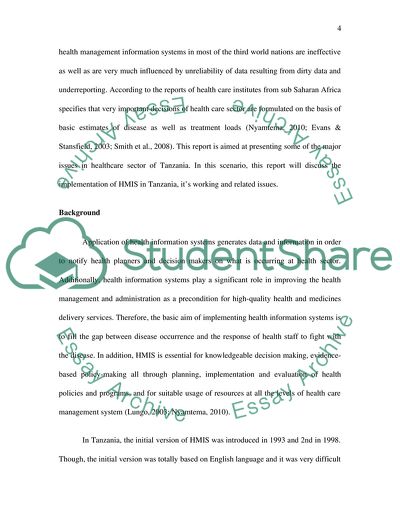Cite this document
(Assessment of Health Management Information System in Tanzania Report - 1, n.d.)
Assessment of Health Management Information System in Tanzania Report - 1. https://studentshare.org/health-sciences-medicine/1766010-assessment-of-health-management-information-system-in-tanzania
Assessment of Health Management Information System in Tanzania Report - 1. https://studentshare.org/health-sciences-medicine/1766010-assessment-of-health-management-information-system-in-tanzania
(Assessment of Health Management Information System in Tanzania Report - 1)
Assessment of Health Management Information System in Tanzania Report - 1. https://studentshare.org/health-sciences-medicine/1766010-assessment-of-health-management-information-system-in-tanzania.
Assessment of Health Management Information System in Tanzania Report - 1. https://studentshare.org/health-sciences-medicine/1766010-assessment-of-health-management-information-system-in-tanzania.
“Assessment of Health Management Information System in Tanzania Report - 1”. https://studentshare.org/health-sciences-medicine/1766010-assessment-of-health-management-information-system-in-tanzania.


